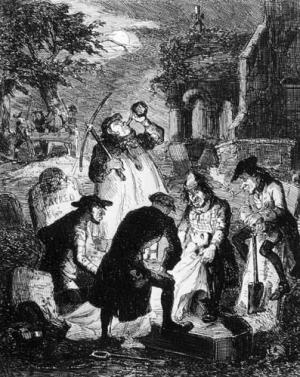If you burgle a house in the country where the householder owns a legally held shotgun, that is the chance you take. You cannot come to court and ask for a lighter sentence because of it.
 |
| Joshua O'Gorman and Daniel Mansell, who were shot in the course of burglary |
It's not a matter of being sentimental. When you are at home you want to feel safe. You are entitled to feel safe and secure.
 |
| Sir Edward Coke: "For a man's house is his castle..." |
The second reason is also hinted at in the Lord Chief Justice's remarks, and is that a burglary might feel like a crime against the person. This might be because while we own or possess different kinds of property, we have a different kind of relation with them. I own some property which is in a sense 'disposable'. If certain kinds of property are taken they are easy to replace, and the lack of police interest, say, in tracking stolen bikes or even cars reflects this to some extent. But there are other kinds of property that might have less intrinsic value, but which have value to me because of their sentimental meaning or because I have worked on them or identify with the property in a certain way, and it would hurt me more to lose or have this stolen. And of course in our culture, our homes represent a particular kind of investment. They are not just a structure in which to eat or sleep, but a particular place in which we ccan decorate and embellish as an expression of our identity - and to which we return at night to recover our sense of self. And it not then surprising that one often finds the victim of burglary reporting the sense of violation that they feel or the loss of a sense of security - the hurt goes far beyond the value of any property taken. So burglary, as with certain kinds of theft, might seem like a kind of invasion of the person.
But we should be careful where we go with this. Should a crime be treated as more serious becuase of the value of the property to the victim? Probably not, though it might at least be arguable that in some cases it might be worse to steal something (even of no value) that you know to be of value to the victim because, say, you want to hurt them.
But what about self defence? The danger of going down this road of seeing threats to property as threats against the person is that we extend the scope of self defence, making it easier to see any intrusion or taking as a threat to self which would justify the use of (possbily fatal) force. It may be that, as LCJ Judge says, homeowners dealing with intruders should not necessarily have to hang around to find out the precise degree of threat offered by that intruder, But at the same time, many burglaries are routine and much of the property stolen is that which is 'disposable' - not easily identifed and quickly convertible into cash (electronics etc). So we should be wary about defining our sense of burglary in terms of what might be an extreme or special case, and we should be especially wary about analogies which make it too easy to extend the scope of self defence.









